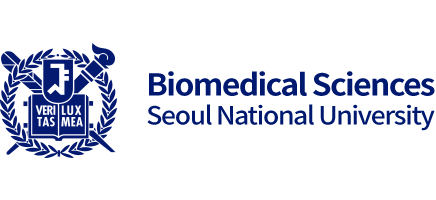Research
Research Field
Brain is a network of hundred billion of neurons connected by quadrillions of synapses. The strength of synaptic connections is altered in response to different stimuli in a bidirectional manner, called synaptic plasticity, which is widely believed as a cellular mechanism of learning and memory. Glutamate receptors play a pivotal role in regulating multiple forms of synaptic plasticity, essential for brain function, and have been implicated in neurodevelopmental disorders and neurodegenerative disorders. Thus, identifying the molecular mechanisms regulating glutamate receptor function is important for understanding both normal CNS function and the pathogenesis of brain disorders.My lab has been interested in how glutamate receptor function is regulated by post-translational modifications such as phosphorylation, SUMOylation, ubiquitination, and neddylation under various physiological and pathological conditions. In addition, we study how several interacting molecules, including auxiliary subunits, determine the function of glutamate receptors. Finally we analyze the molecular mechanisms of synaptopathy, that is, how synaptic dysfunction leads to the pathogenesis of autism, depression, Alzheimer’s disease, and ALS. We apply various methods in our research including molecular cellular biology, biochemistry, confocal imaging, and animal model.
Keyword
Glutamate receptors, Synaptopathy, Synaptic plasticity, Neurodevelopmental disorders, Neurodegenerative disordersEducation
- 1997 M.D., Seoul National University College of Medicine, Seoul, South Korea
- 2002 Ph.D., Seoul National University College of Medicine, Seoul, South Korea
Career
- 2005~2010 Postdoctoral Fellow, National Institute of Neurological Disorders and Stroke, NIH, Bethesda, MD, USA
- 2010~2014 Assistant Professor, Department of Pharmacology, Ajou University School of Medicine, Suwon, South Korea
- 2014. 9~ Associate Professor, Department of Biomedical Sciences, Seoul National University College of Medicine, Seoul, South Korea
Publication
- Kang M, Lee D, Song JM, Park S, Park DH, Lee S, Suh YH*. Neddylation is required for presynaptic clustering of mGlu7 and maturation of presynaptic terminals. Exp Mol Med. 2021 Mar;53(3):457-467
- Song JM, Kang M, Park DH, Park S, Lee S, Suh YH*. Pathogenic GRM7 mutations associated with neurodevelopmental disorders impair axon outgrowth and presynaptic terminal development. J Neurosci. 2021 Mar 17;41(11):2344-2359
- Park DH, Park S, Song JM, Kang M, Lee S, Horak M, Suh YH*. N-linked glycosylation of the mGlu7 receptor regulates the forward trafficking and transsynaptic interaction with Elfn1. FASEB J. 2020 Nov;34(11):14977-14996
- Skrenkova K, Song JM, Kortus S, Kolcheva M, Netolicky J, Hemelikova K, Kaniakova M, Krausova BH, Kucera T, Korabecny J, Suh YH*, Horak M*. The pathogenic S688Y mutation in the ligand-binding domain of the GluN1 subunit regulates the properties of NMDA receptors. Sci Rep. 2020 Oct 29;10(1):18576
- Lee S, Park S, Lee H, Han S, Song JM, Han D, Suh YH*. Nedd4 E3 ligase and beta-arrestins regulate ubiquitination, trafficking, and stability of the mGlu7 receptor. Elife. 2019 Aug 2;8:e44502




